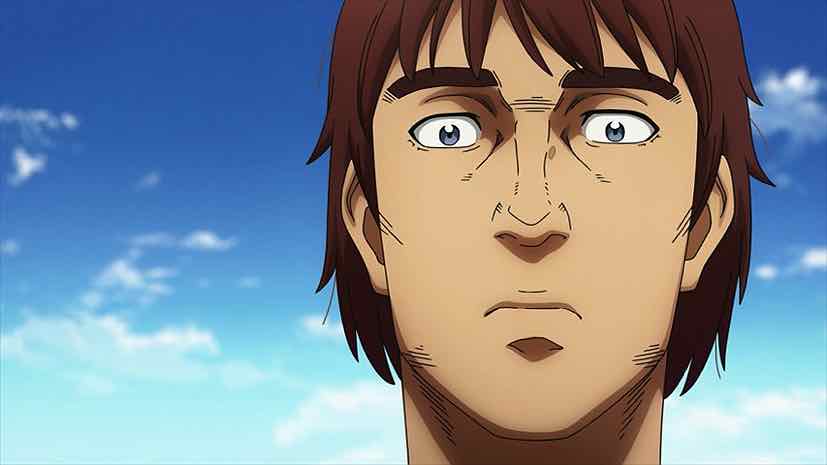 Yukimura Makoto has tapped into a very deep well here with Vinland Saga turning to the everyday lives of slaves. I don’t know for how long this is going to remain a focus, but it’s a fascinating topic that’s worthy of exploration. Slavery has existed in widespread form for most of recorded human history -we can look down our noses at our past now but we can’t erase it. Slavery – and the manner in which free people with a conscience chose to address it – is a mirror held up to reflect human nature whether we like it or not.
Yukimura Makoto has tapped into a very deep well here with Vinland Saga turning to the everyday lives of slaves. I don’t know for how long this is going to remain a focus, but it’s a fascinating topic that’s worthy of exploration. Slavery has existed in widespread form for most of recorded human history -we can look down our noses at our past now but we can’t erase it. Slavery – and the manner in which free people with a conscience chose to address it – is a mirror held up to reflect human nature whether we like it or not.
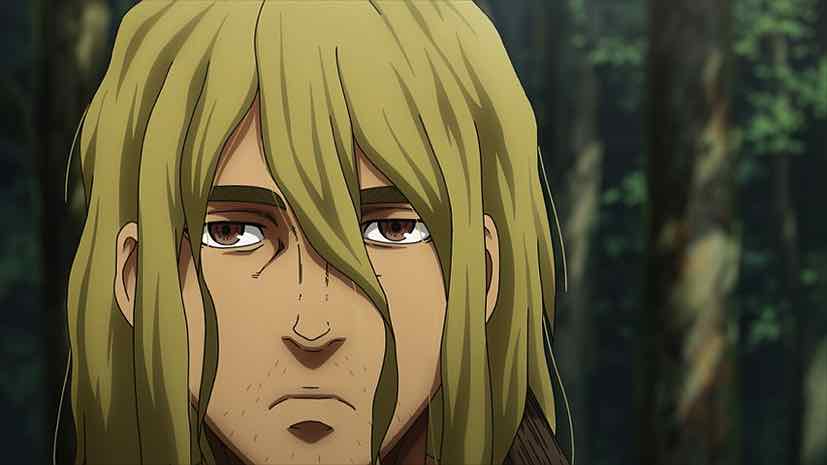 Ketil appears to be such a man – but I’m not yet ready to take him or this entire situation at face value. He seems to be genuinely concerned with the welfare of his slaves – one of whom is of course Thorfinn. He introduces Einar to him and informs him that Thorfinn will teach him the ins and outs of his new life. That life is clearing a forest and planting wheat – wheat which Ketil says he’ll buy from the men at market value starting with their first harvest. Once the value of what they produce is equal to their purchase price, he’ll set them free (by his declared reckoning, in perhaps as soon as three years).
Ketil appears to be such a man – but I’m not yet ready to take him or this entire situation at face value. He seems to be genuinely concerned with the welfare of his slaves – one of whom is of course Thorfinn. He introduces Einar to him and informs him that Thorfinn will teach him the ins and outs of his new life. That life is clearing a forest and planting wheat – wheat which Ketil says he’ll buy from the men at market value starting with their first harvest. Once the value of what they produce is equal to their purchase price, he’ll set them free (by his declared reckoning, in perhaps as soon as three years).
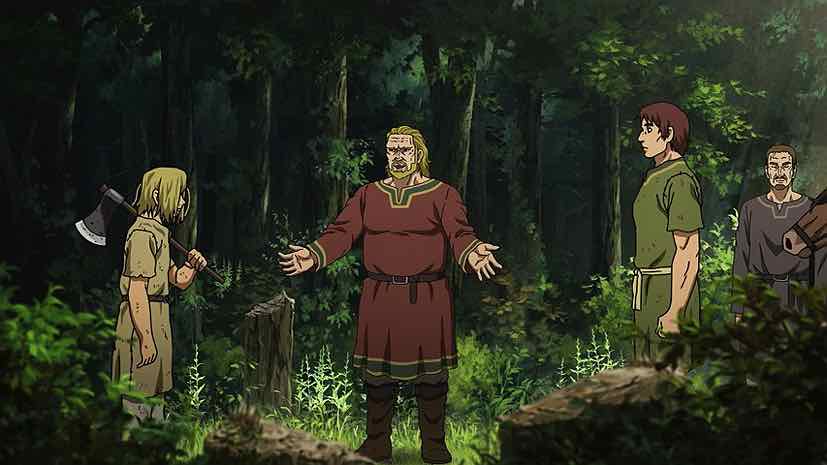 Again, historical awareness breeds caution here. A man in Ketil’s shoes is under no legal obligation to be truthful to men in Einar and Thorfinn’s (shoeless) position. And what Ketil sees as kindness where slaves are concerned might not seem so kind to enlightened people today. But Ketil may certainly be all he seems, and sincere. If that’s the case Thorfinn and Einar are very lucky, because most slaveholders in the 11th Century were a lot less moderate on their outlook. That said, there are still problems – like Ketil’s retainers eating most of the food they’re supposed to deliver to the slaves, and generally treating them like trash.
Again, historical awareness breeds caution here. A man in Ketil’s shoes is under no legal obligation to be truthful to men in Einar and Thorfinn’s (shoeless) position. And what Ketil sees as kindness where slaves are concerned might not seem so kind to enlightened people today. But Ketil may certainly be all he seems, and sincere. If that’s the case Thorfinn and Einar are very lucky, because most slaveholders in the 11th Century were a lot less moderate on their outlook. That said, there are still problems – like Ketil’s retainers eating most of the food they’re supposed to deliver to the slaves, and generally treating them like trash.
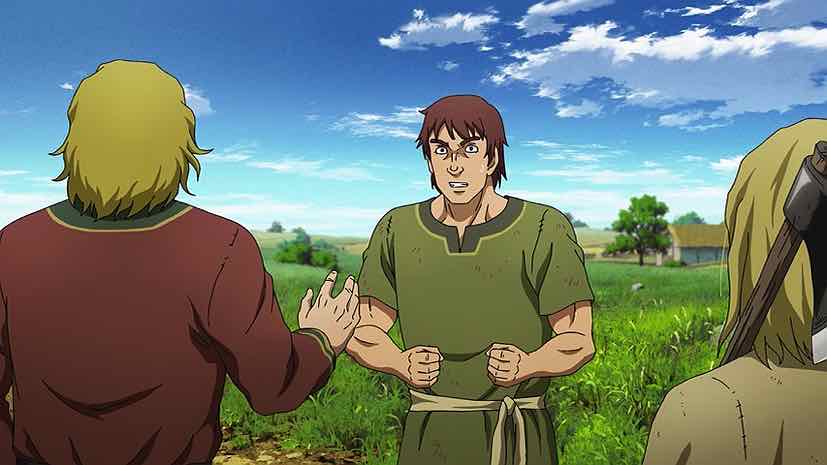 For slaves, that’s par for the course (or better, truthfully). I have to assume the pair of them are getting food elsewhere or they’d surely starve on those rations and under that workload. What’s really striking here is Thorfinn’s seeming passivity, even towards Ketil’s retainers at their worst. We don’t know exactly what happened with Thorfinn between the end of the first season and the start of this one, but he acts like a man with all the fight gone out of him. But this is another element I’m not taking at face value. When Thorfinn apologetically intervenes when Einar is about to be drawn into a confrontation over the stolen food, the bullies back down – and I think it’s because they see something in Thorfinn’s eyes they really don’t like.
For slaves, that’s par for the course (or better, truthfully). I have to assume the pair of them are getting food elsewhere or they’d surely starve on those rations and under that workload. What’s really striking here is Thorfinn’s seeming passivity, even towards Ketil’s retainers at their worst. We don’t know exactly what happened with Thorfinn between the end of the first season and the start of this one, but he acts like a man with all the fight gone out of him. But this is another element I’m not taking at face value. When Thorfinn apologetically intervenes when Einar is about to be drawn into a confrontation over the stolen food, the bullies back down – and I think it’s because they see something in Thorfinn’s eyes they really don’t like.
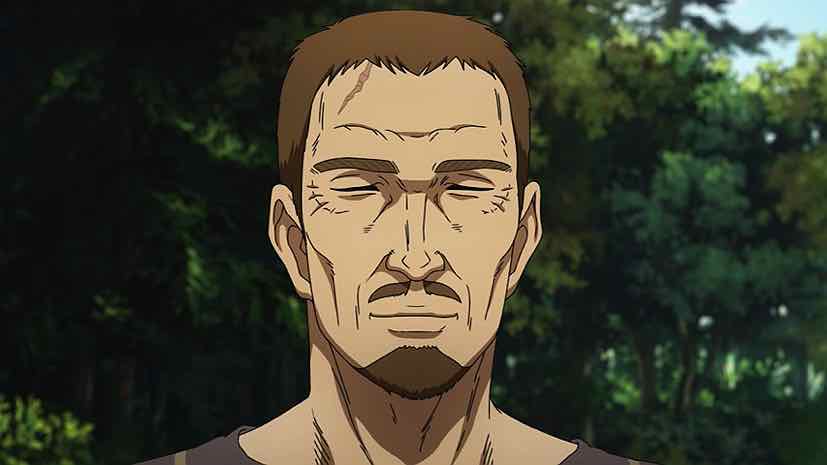 Another intriguing element here is Ketil’s son Olmar (Hayashi Yuu). Predictably he’s the one person Ketil isn’t nice to, but to be fair Olmar seems to deserve it. This looks like a pretty typical case of a rebellious 17 year-old and his father – Olmar professes to hate farming and expresses no desire to inherit the farm, and his father is obviously disappointed in him. Olmar fraternizes with the daughter of one of the tenant farmers (much to their delight), and dreams of being a soldier despite having no knowledge of what that actually means. It doesn’t take 20/20 vision to see all the potential angles for trouble where this kid is concerned.
Another intriguing element here is Ketil’s son Olmar (Hayashi Yuu). Predictably he’s the one person Ketil isn’t nice to, but to be fair Olmar seems to deserve it. This looks like a pretty typical case of a rebellious 17 year-old and his father – Olmar professes to hate farming and expresses no desire to inherit the farm, and his father is obviously disappointed in him. Olmar fraternizes with the daughter of one of the tenant farmers (much to their delight), and dreams of being a soldier despite having no knowledge of what that actually means. It doesn’t take 20/20 vision to see all the potential angles for trouble where this kid is concerned.
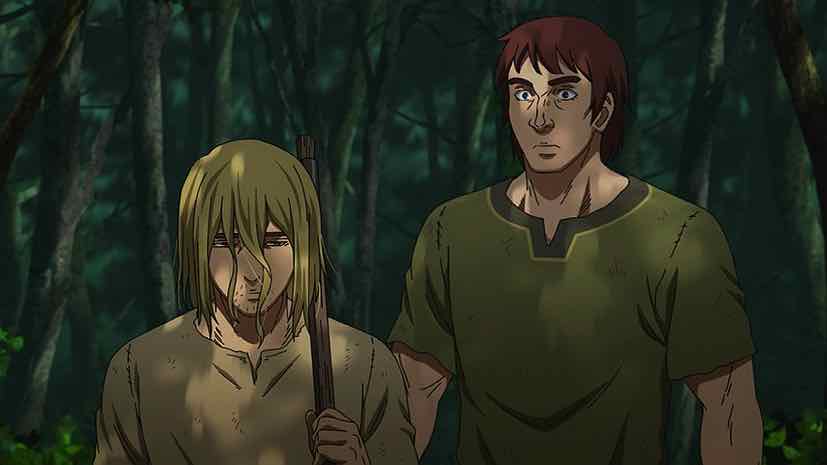 There’s another potential flashpoint here, given where Einar and Thorfinn come from. Einar is not a worldly man (which is completely realistic) and when Thorfinn says he’s from Iceland that means nothing to him. But when he starts talking about what happened to his mother and sister (after the English army killed his father) Thorfinn’s eyes (again) betray the turmoil behind the calm exterior. Directly or indirectly it was Thorfinn’s people who did that, and it’ll be interesting to see how Einar responds once that connection becomes clear to him.
There’s another potential flashpoint here, given where Einar and Thorfinn come from. Einar is not a worldly man (which is completely realistic) and when Thorfinn says he’s from Iceland that means nothing to him. But when he starts talking about what happened to his mother and sister (after the English army killed his father) Thorfinn’s eyes (again) betray the turmoil behind the calm exterior. Directly or indirectly it was Thorfinn’s people who did that, and it’ll be interesting to see how Einar responds once that connection becomes clear to him.
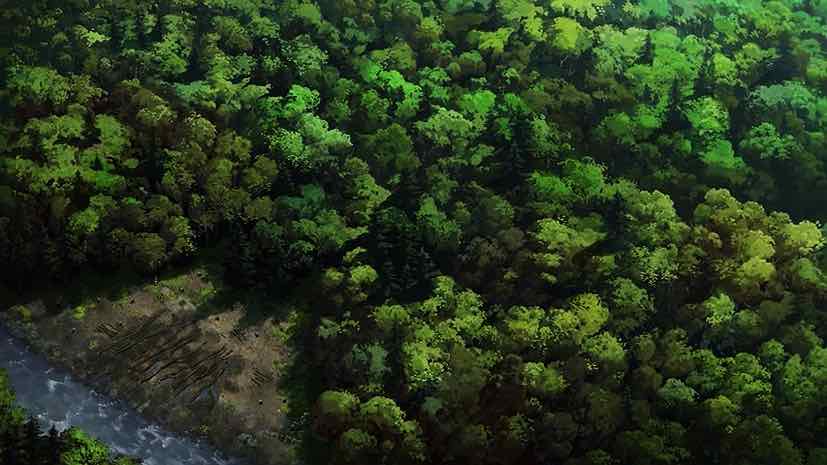 Slavery has become a fashionable trope in anime lately, but almost always in the vein of incredibly banal light-novel portrayals that demean the human condition merely by existing. The medium cries out for a serious, thoughtful antidote to that, and I can think of few series better equipped to provide it than Vinland Saga. Yukimura is legendary for the obsessively detailed research he does for Vinland Saga (including many visits to the areas it depicts), and should he chose to explore this topic in depth, I would fully expect the nuance and incisiveness it demands.
Slavery has become a fashionable trope in anime lately, but almost always in the vein of incredibly banal light-novel portrayals that demean the human condition merely by existing. The medium cries out for a serious, thoughtful antidote to that, and I can think of few series better equipped to provide it than Vinland Saga. Yukimura is legendary for the obsessively detailed research he does for Vinland Saga (including many visits to the areas it depicts), and should he chose to explore this topic in depth, I would fully expect the nuance and incisiveness it demands.


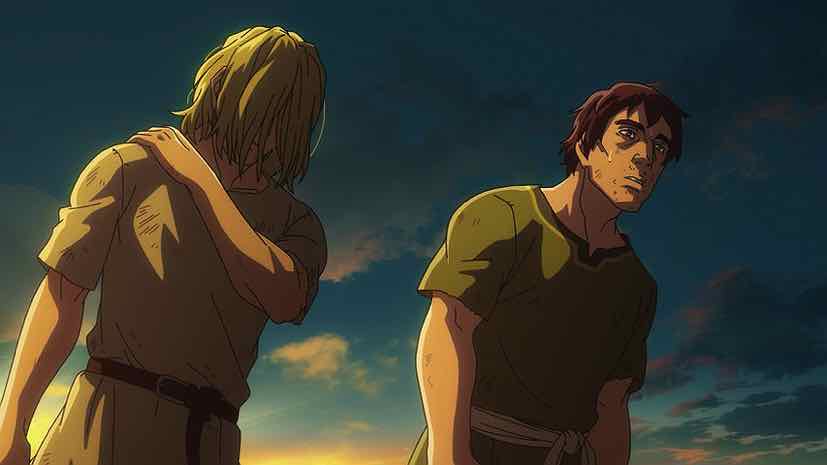
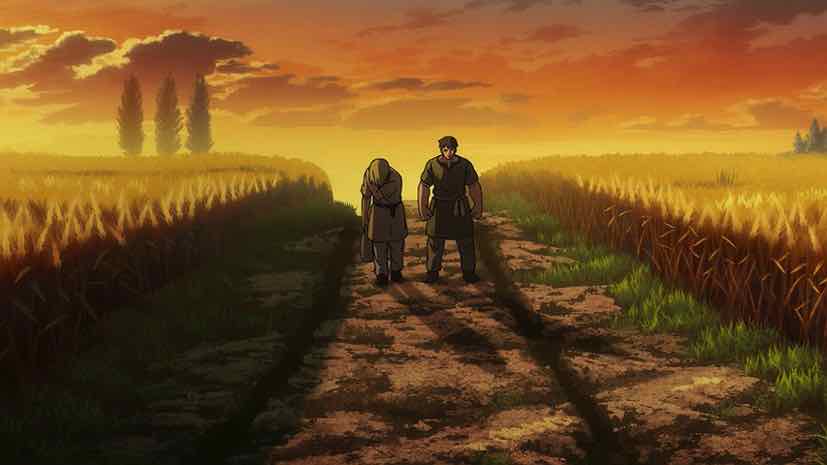
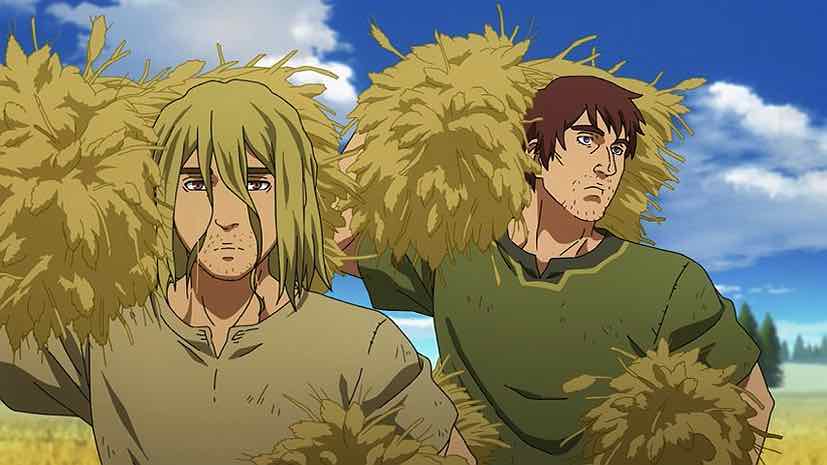
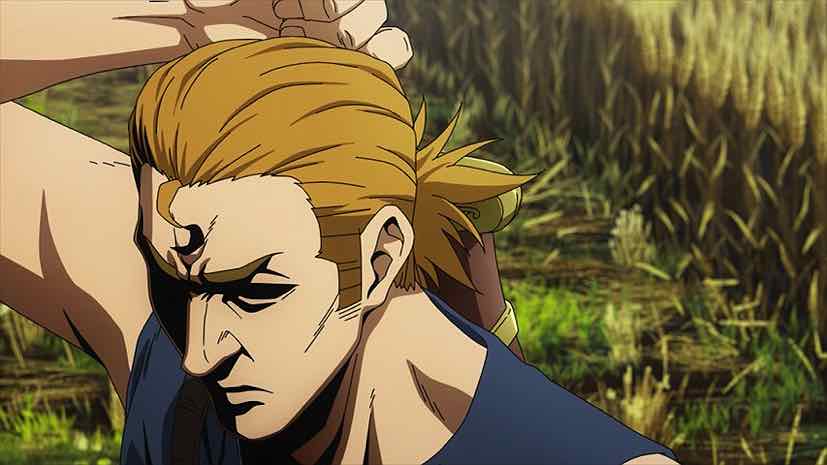
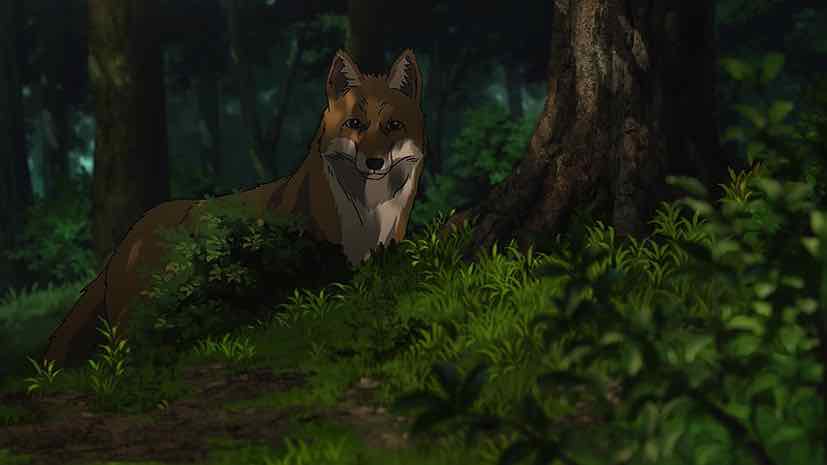
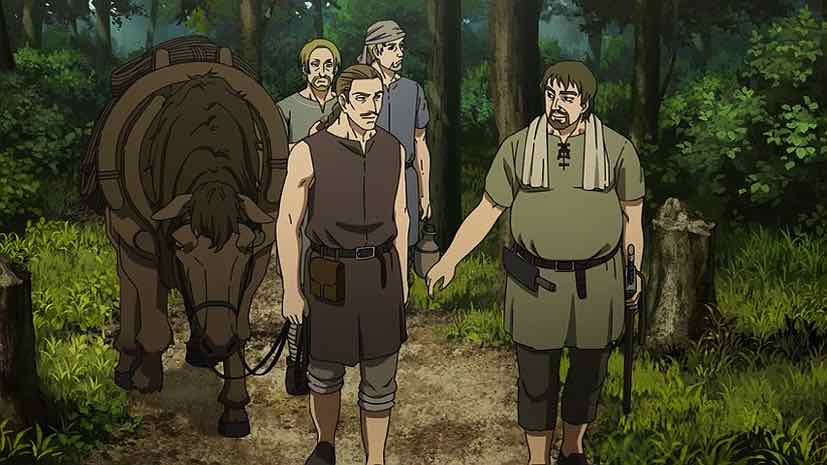
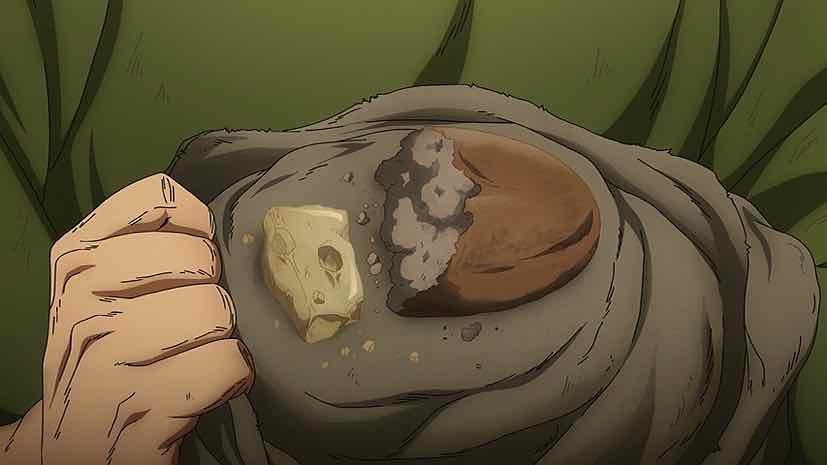
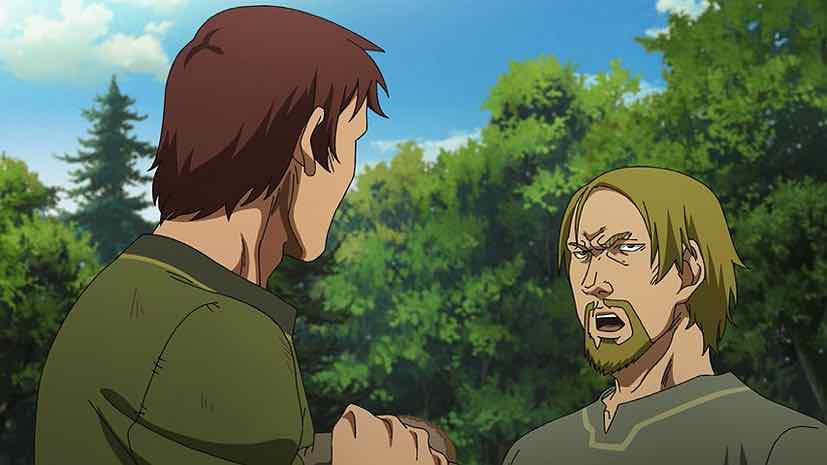
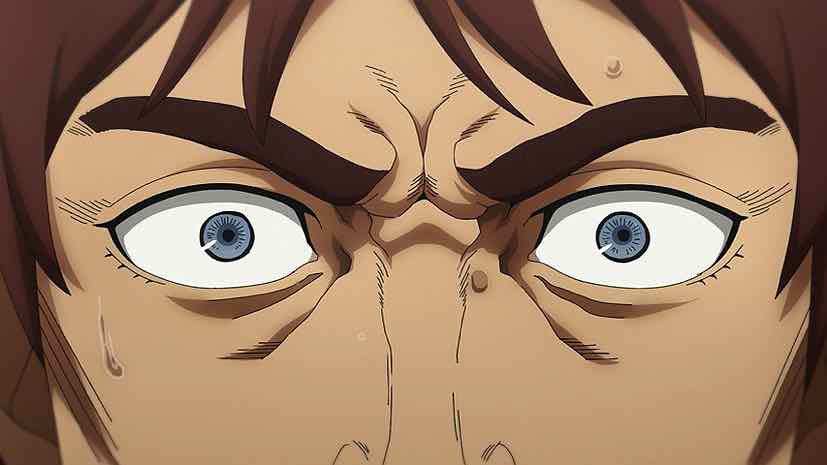
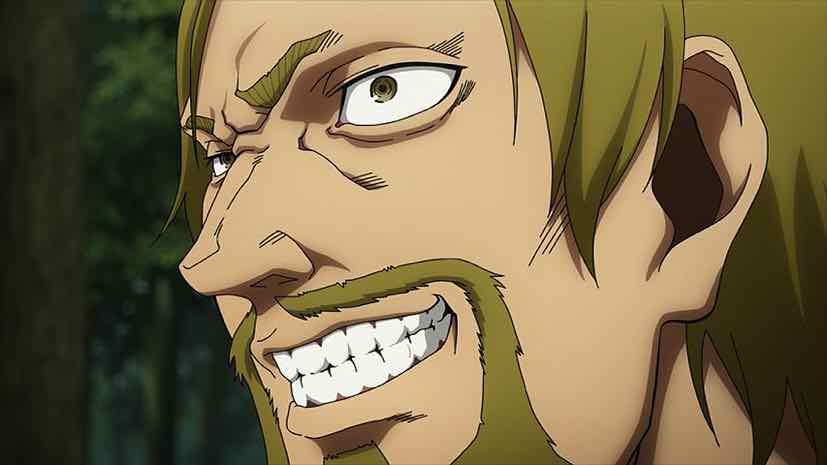
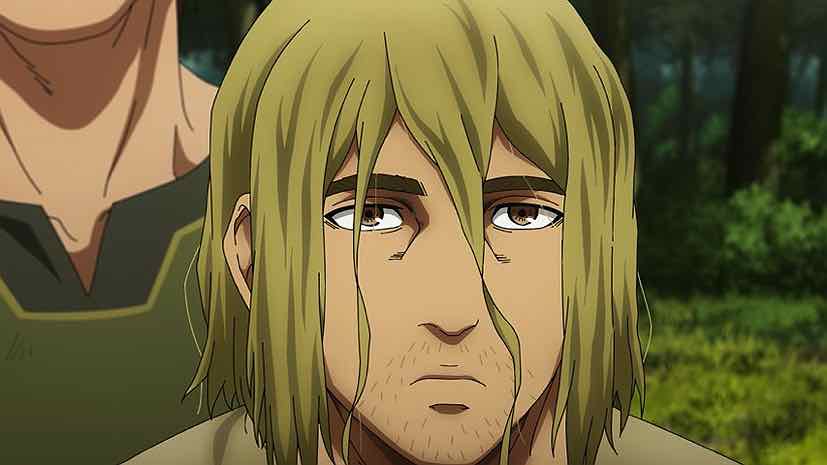
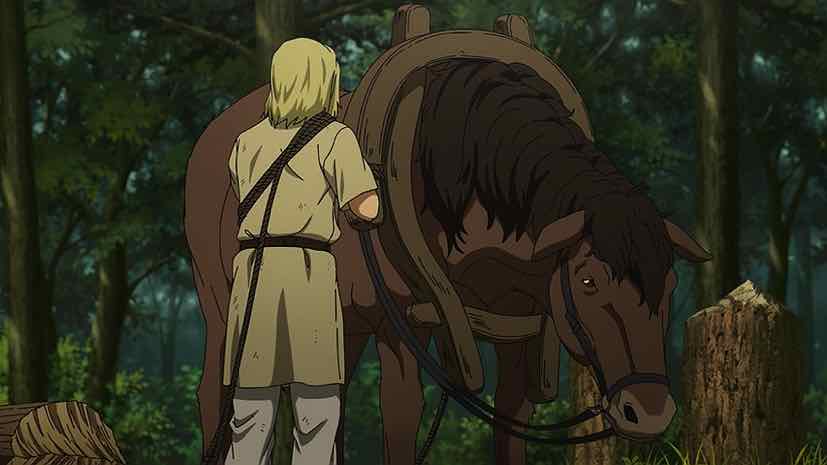
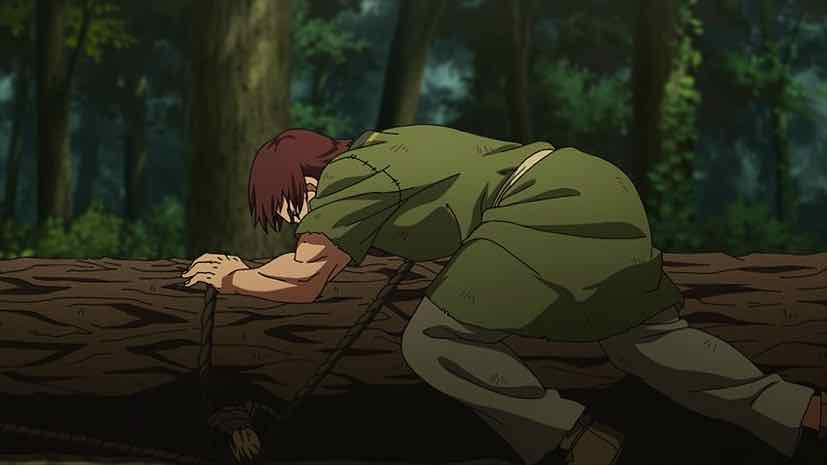
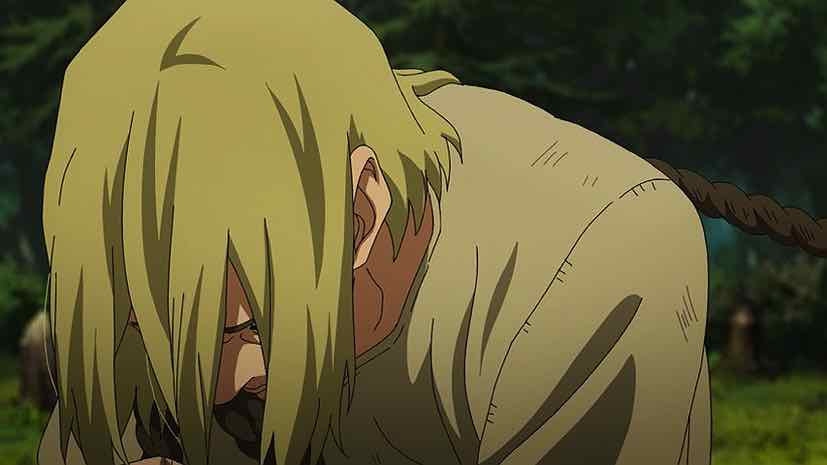
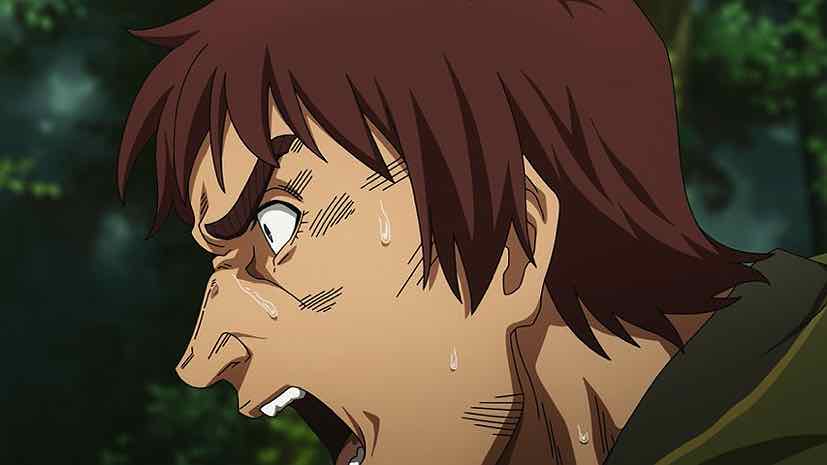
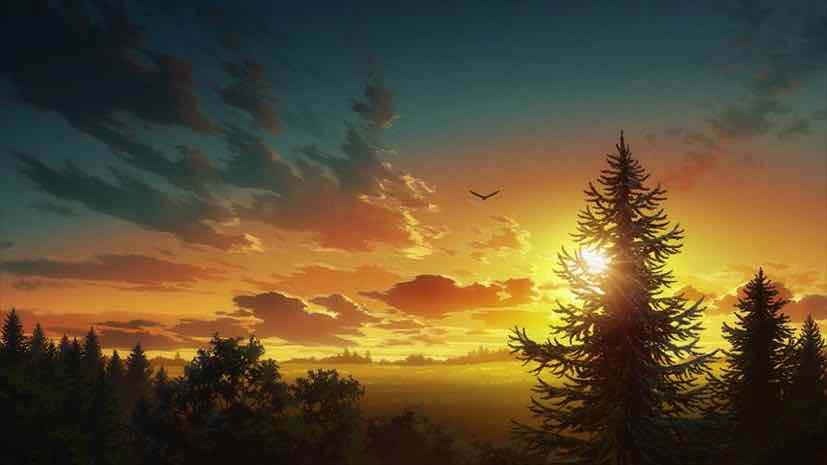
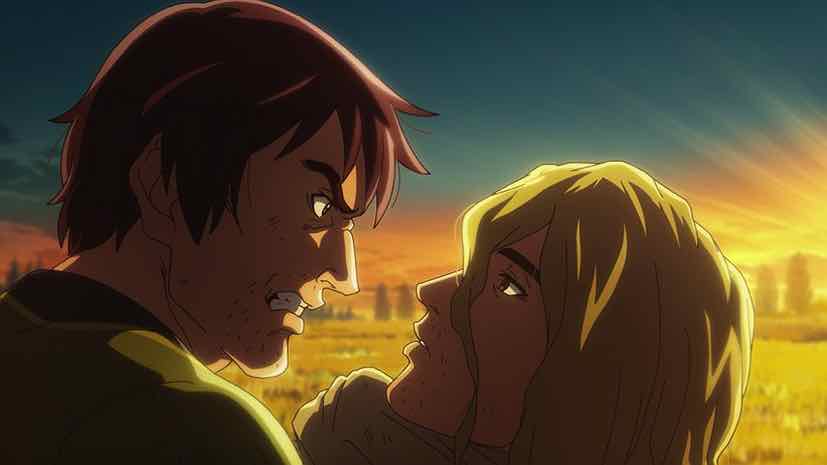
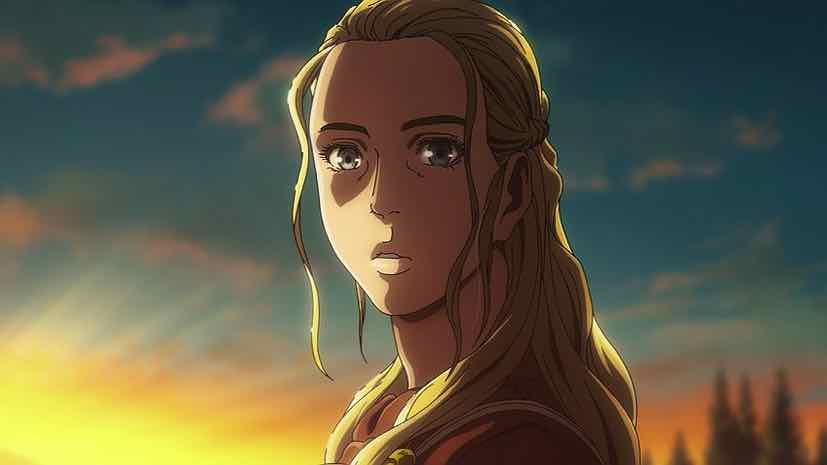
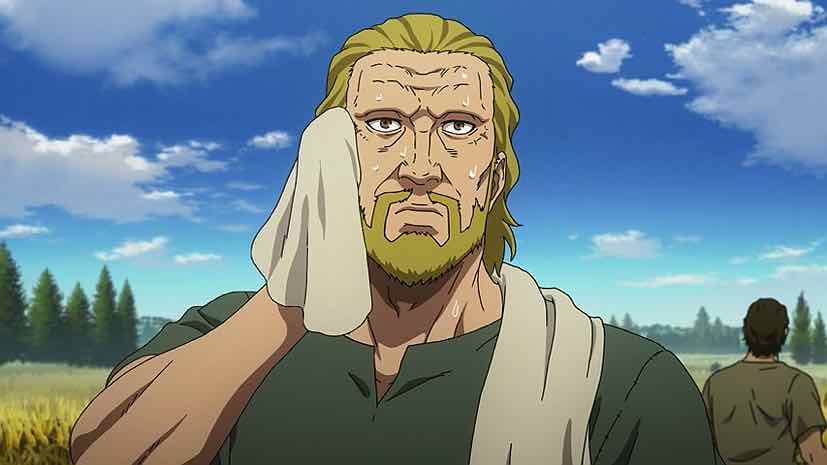
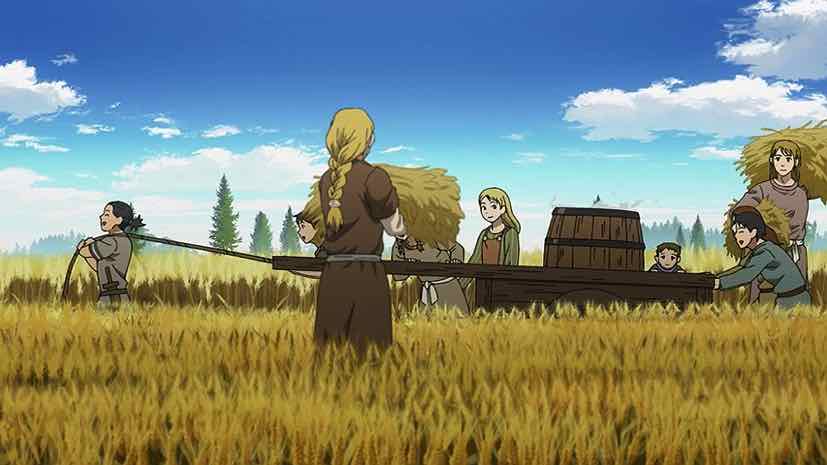
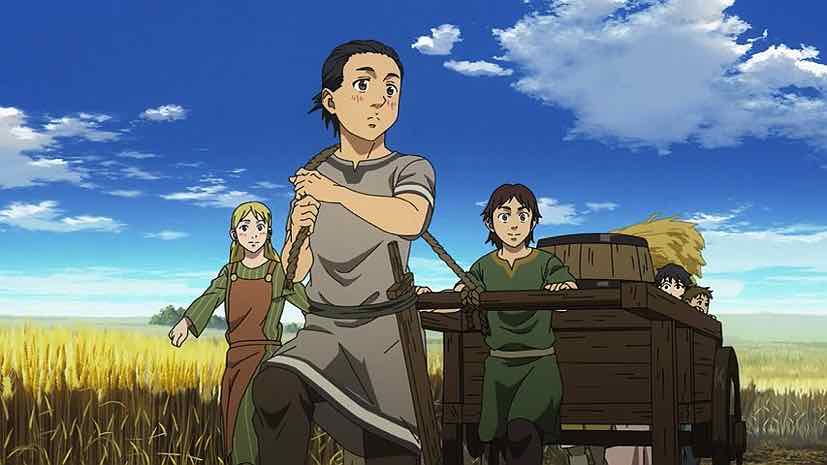
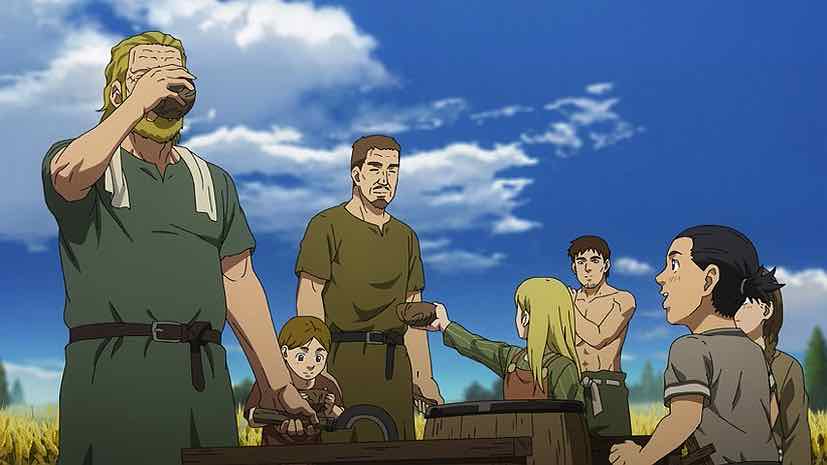
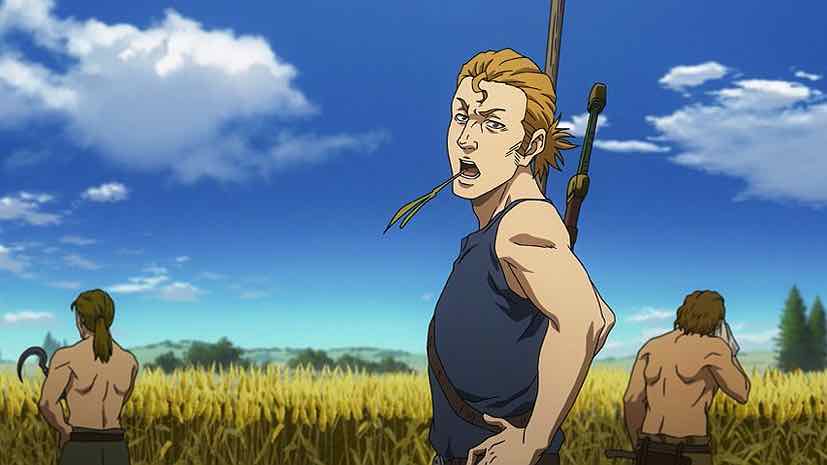
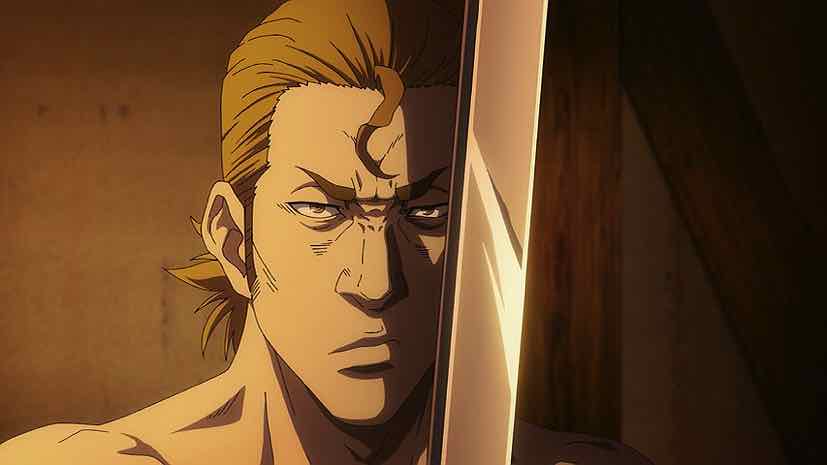
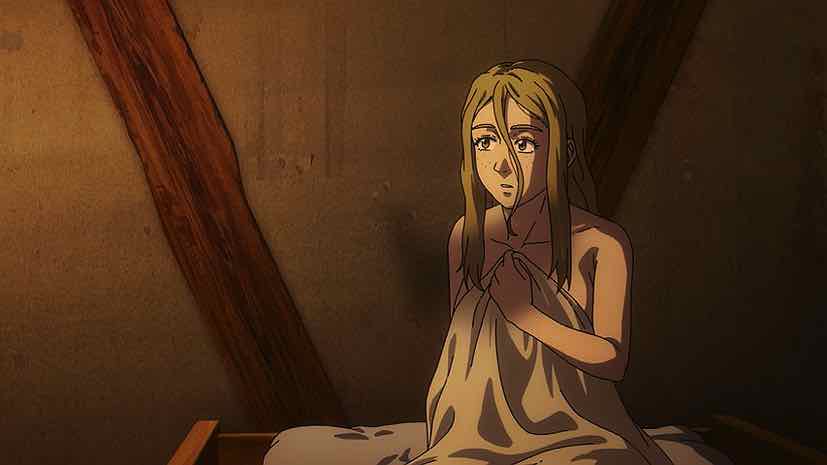
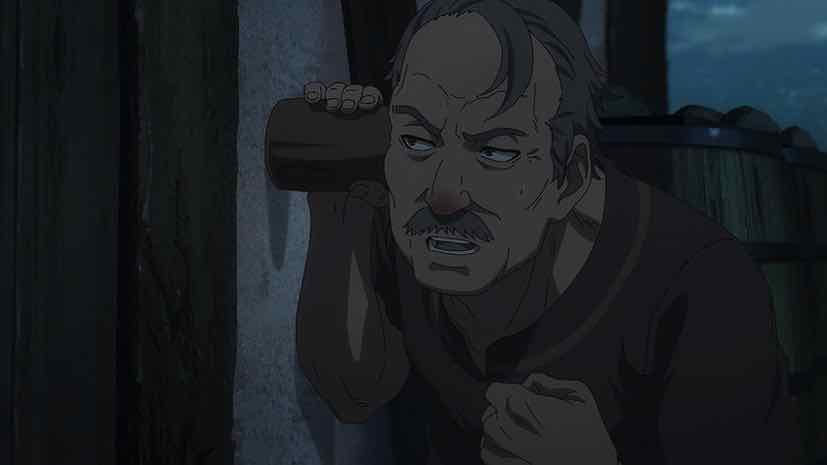
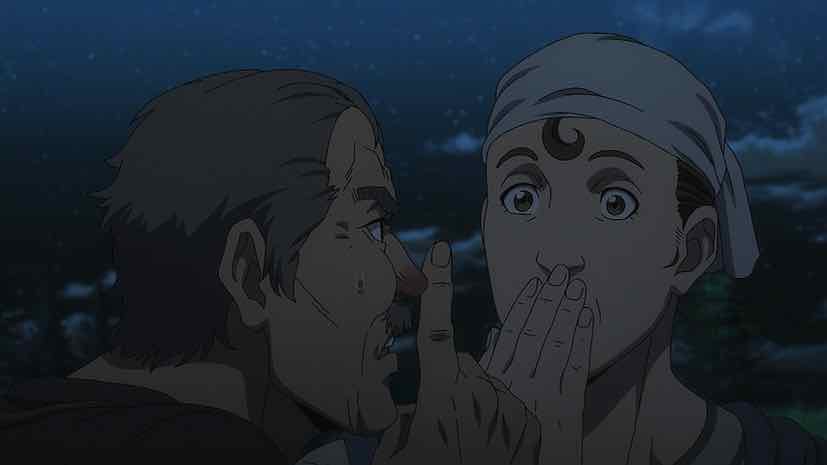
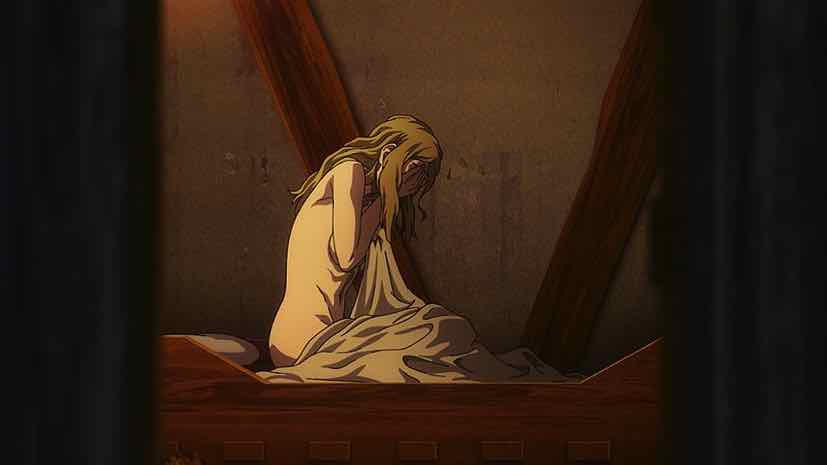
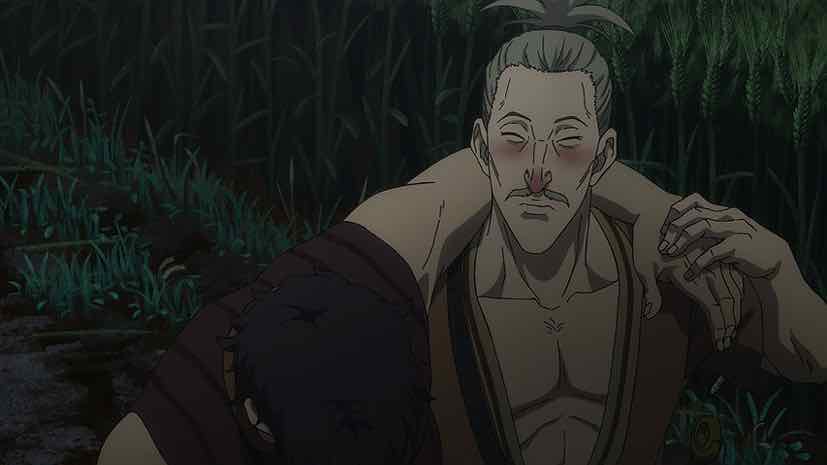
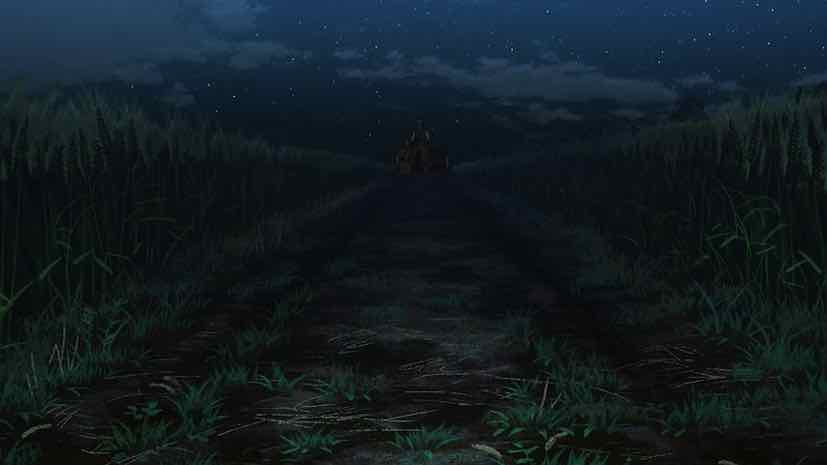
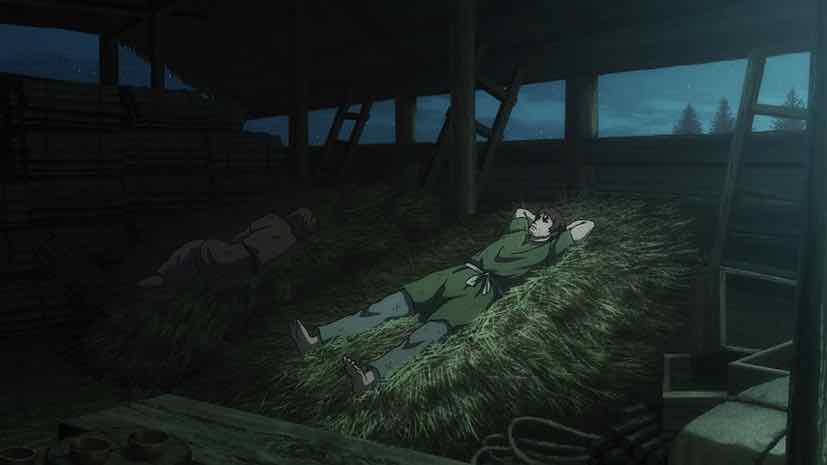
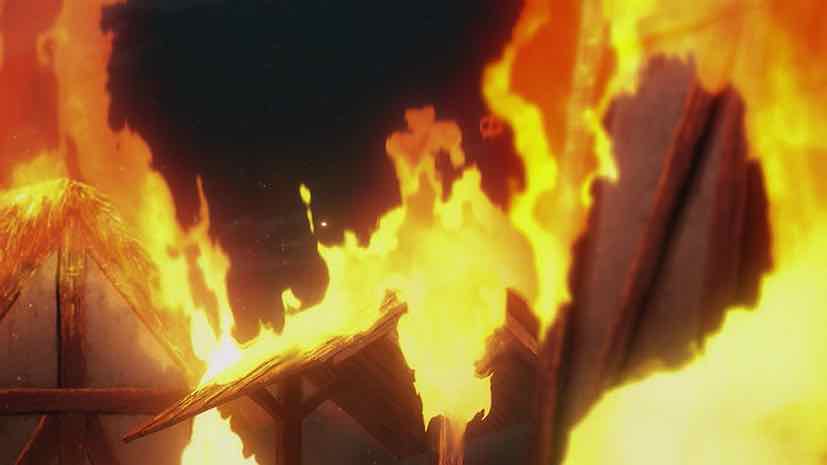
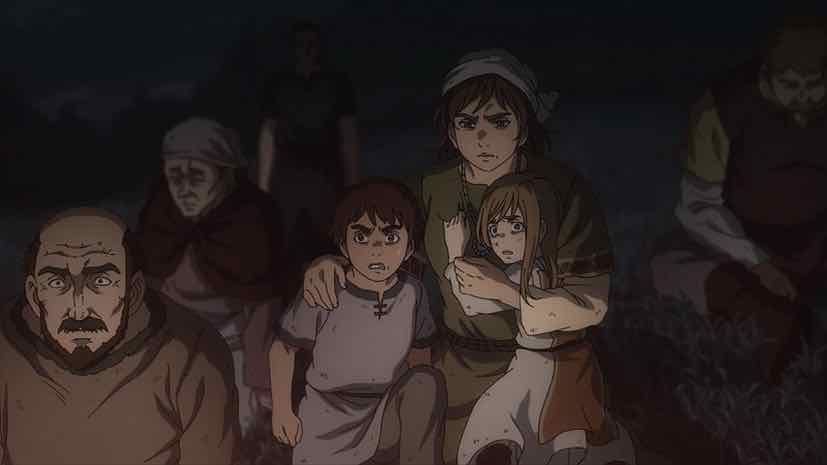
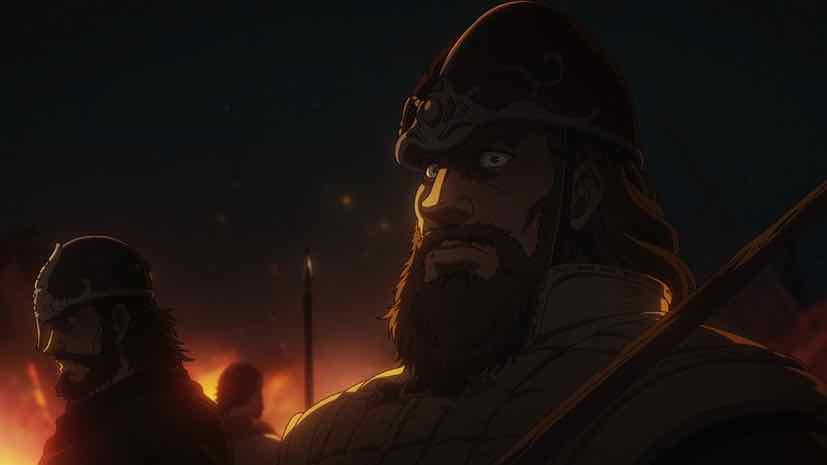
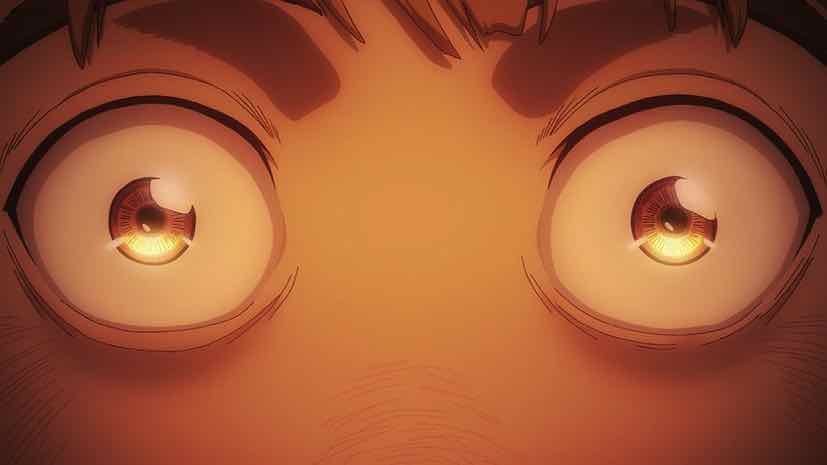
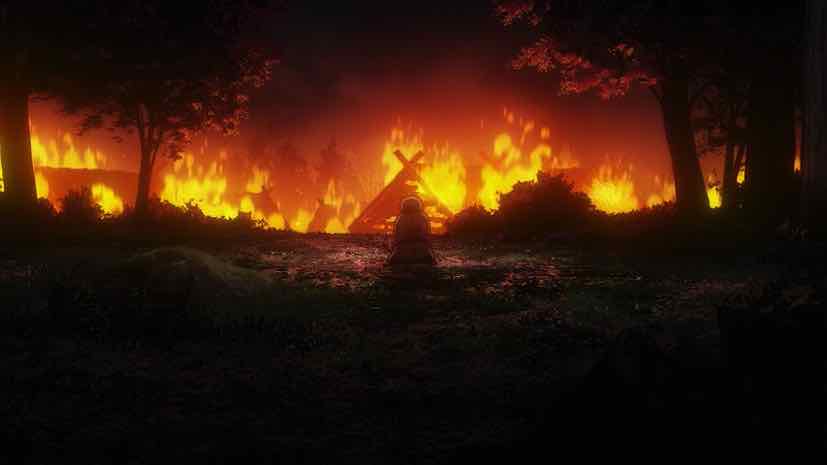

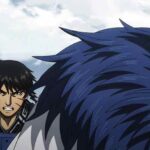
Raikou
January 17, 2023 at 9:53 pmAskeladd’s death is one and only Thorfinn’s purpose of life, and now that it’s gone, he doesn’t have any drive to live.
But since he’s still working, deep down he’s still care to survive in this world.
Eugene T.
January 17, 2023 at 10:58 pmThere were a few changes made to alter the tone of the scenes so Einar comes off as more jaded and less enthusiastic, which Yukimura himself noted on his twitter.
I generally appreciate these changes, especially coming off Einar’s emotionally charged backstory following the manga 1:1 right after would have caused some serious whiplash, not to mention I think I just prefer it in general.
There were definitely some dips on production quality this episode (probably inevitable given Vinland is just one of Mappa’s many projects) that do make me miss Wit. Like Golden Kamuy or Kingdom, Vinland doesn’t need top-line production values to shine as an anime, but I hope Yabuta’s deft hand can keep the labour-of-love feel we got from S1.
Guardian Enzo
January 17, 2023 at 11:24 pmMe too. No-faces in the 2nd episode is a bit worrying.
Krize
January 19, 2023 at 4:05 amWhy did Wit drop this show, anyways? It’s just about the most kingly material out there in terms of adaptation, for my money.
Guardian Enzo
January 19, 2023 at 7:04 amYou ask this about the studio that dropped AoT? Dropping big shows is old hat for Wit – production capacity is always an issue there. Plus, between S1-2 here Yabuta became a full-time MAPPA employee.
Stewart
January 17, 2023 at 11:43 pmWhile many people refer to this arc as the Farmland arc or Farmland saga,the official name of this arc given by Yukimura is the Slave arc. Which that alone shows that this arc will definitely do its best to examine the subject in much more detail( and of course more seriousness) then most anime that feature it. Also I’d say Thorfinn is suffering from depression now after losing the single thing he devoted his life to for eleven years He’s just going through the motions of day to day living not really caring about happens or is going on.
Marty
January 17, 2023 at 11:52 pmI will say this, if there is 1 mangaka I have faith in tackling such a heavy subject as slavery without any of the modern fetishizing or tropes in anime/Manga, it’s Yukimura.
Something I like about Yukimura as a writer is that when he’s on a roll, he can write some very nuanced characters, even if they’re minor characters, like Olmar being not just a bratty 17 year old, but someone struggling with his identity beyond his father’s shadow.
While I don’t think Yukimura’s character writing compares in quantity to Satoru Noda (Golden Kamuy), I still believe it’s top notch.
DonkeyWan
January 19, 2023 at 9:18 amThere’s a very interesting moment in the episode where Olmar watches the drunken men crossing the field and expresses (albeit quietly) his concern for the wheat. It’s a minor moment (it was in the manga too) but shows that Olmar is mor than just a stock ‘angsty teen’. He wants to be somebody, to be respected, to come out of his father’s shadow, but he also still cares about the things his father cares about. Even his decision to help with the harvest shows he is more than just a spoiled brat, even if he then loses patience and leaves. He’s not an idiot either, he quickly sees through the plans of the farmers, as well as the drunks, but passively goes along with them. His character is quiet interesting and eventhough he could have easily been played for laughs, he was ealt with in a very clever way in the manga, which is faithfully adapted here.
Guardian Enzo
January 19, 2023 at 2:29 pmYeah, I definitely noticed that moment with the wheat. I don’t expect stock characters from Yukimura though, so it’s more or less my expectations that someone like that is going to be nuanced.